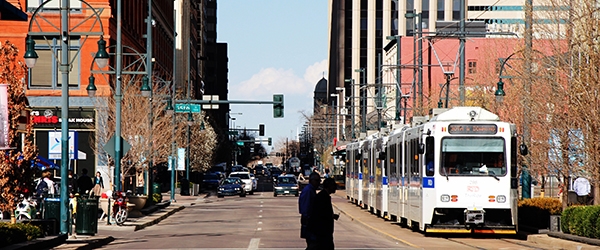NITC Invites Submissions for 2019 General Research RFP

The National Institute for Transportation and Communities (NITC) program has released its 2019 general research request for proposals. Faculty at NITC's partner universities* are invited to submit abstracts by March 29, 2019.
Through funding provided by the U.S. DOT, we will award up to $1,000,000 to research projects that support NITC’s theme: improving mobility of people and goods to build strong communities. Our theme includes a few key topics:
- Increasing access to opportunities
- Improving multi-modal planning and shared use of infrastructure
- Advancing innovation and smart cities
- Developing data, models, and tools
2019 RESEARCH PRIORITIES
The NITC Advisory Board has provided input into several research priorities that relate to multimodal transportation data and the transportation-land use-housing connection. NITC is prioritizing the funding of proposals that directly addresses research questions related to:
Developing Data, Models and Tools. Agencies are confronting a plethora of new mobility options along with new data sources to support transportation research, planning, and analysis. Several priority research areas have been identified to increase understanding:
- Collection of multimodal data. Are there advanced technologies or methods to capture and count pedestrians? Are there methods to quantify data bias to protect underrepresented populations? What are the barriers to collecting quantitative data related to unserved trips and unmet need demand? How can crowdsourced data be used to understand mobility?
- Analysis. How can we ensure that projects (investments in infrastructure) are evaluated in a rigorous way so that we build a solid evidence base to inform decisions about future projects? How can data be used to inform decision-making such as investment and multimodal policies? Are there sources or better metrics to quantify safety, how safe specific types of streets really are, or safety performance measures in urban/multimodal settings in contrast with LOS?
- Role of Artificial Intelligence and Machine Learning. How can artificial intelligence or machine learning distill operational data in real time?
- Standards and Privacy. Are there frameworks for integrating multiple sources of data for urban mobility research across the modes? What is the right balance between personal data privacy and city-access to mobility data for research, planning, and regulatory purposes? How do or will international privacy regulation, impact new mobility providers? What are the right data? Who owns the data? Are they willing to share it?
Mobility of People: the Transportation, Land Use and Housing Connection. Where people can afford to live can greatly limit their transportation choice and increase their costs. More research is needed to assist agencies in crafting policies or making decisions that can work more effectively to help households with low incomes. Three priority areas have been identified:
- Transportation-Housing Cost Burden. How can transportation planning better take into consideration housing, transit, amenities, etc. to reduce overall transportation-housing cost to households with low incomes? What are minimum transportation costs (money and time) for populations with specific job skills to accept and maintain employment? How well does affordable housing align to reduce transportation costs? What are the best locations to subsidize housing in order to minimize total household housing/transportation costs and maximize access to opportunity? What is the best mix of market-rate and affordable/low income for a vibrant downtown?
- Best practices and policy regarding linking transportation, housing and land use. How are communities effectively using regulations to address transportation and mobility? What are the institutional issues associated with integrating regional planning, local planning and affordable housing policy?
- Predicting behavior to drive better transportation planning and initiatives. How does access to new mobility options such as scooters, transportation network companies, etc. impact land use and housing location choices? Where are low income people likely to be moving 5-10 years plus from now so we can plan now for their transportation needs?
Read more and download the full RFP here. See the eleven projects that were chosen for funding through our 2018 General Research RFP.
KEY DATES
- Abstracts due: March 29, 2019, 5pm PDT
- Proposals due: April 26, 2019, 5pm PDT
- Peer review of proposals: May - June 2019
- Project selection, awards and task orders: June-August 2019
- Projects begin: August 1 - September 1, 2019
- All progress reports due: March 30 , 2020
- All progress reports due: September 30, 2020
ELIGIBILITY
*Faculty members and research faculty from Portland State University, University of Oregon, Oregon Institute of Technology, University of Utah, University of Arizona, and University of Texas at Arlington are eligible to submit proposals.
GET UPDATES
Sign up for our newsletter to receive updates on research and events from NITC.
The National Institute for Transportation and Communities (NITC), one of five U.S. Department of Transportation national university transportation centers, is a program of the Transportation Research and Education Center (TREC) at Portland State University. The NITC program is a Portland State-led partnership with the University of Oregon, Oregon Institute of Technology, University of Utah and new partners University of Arizona and University of Texas at Arlington. We pursue our theme — improving mobility of people and goods to build strong communities — through research, education and technology transfer.
